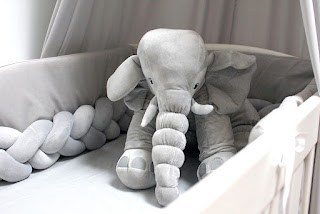Hannah* and baby Sarah are home and
adapting to their new life. In this short time, Hannah is learning not to be
too hard on herself (mistakes can and will happen she says), to communicate her
needs and share responsibilities with her partner and to accept help from
family and friends.
Hannah is trying not to be a ‘worry
machine’, but it’s easier said than done. “Like knowing when Sarah’s full and
when she’s hungry. Today I’m on ‘poo patrol’ because Sarah didn’t poop
yesterday. I stress when she doesn’t. But I also stress when she does – it’s so
yucky.”
Baby’s first poop is called
meconium. It’s a slimy, sticky, blackish, tarry-looking thick mucus. It’s what
collected in baby’s bowels during pregnancy (babies don’t poop when you’re
pregnant). During the first few days after the birth, this mucous is gradually
cleaned out. It changes to dark bottle-green, green-mustard colour, mustard
colour to yellow when bilirubin is excreted. Breastfed poops smell ‘sweeter’
than formula poop. Formula-fed babies can have firmer or even hard stools. Its
important to mix the formula according to instructions, and not to pack the
scoops too tightly – or add extra formula in the belief the more is better.
Breastfed babies can have up to five poops a day – or one big poop every second
or third day.
It's important not to give
newborn’s laxatives or suppositories or to add brown sugar or cooking oil to
formula. This is because the baby’s bowel needs to build up natural organisms
called microbiomes that are so important to prevent allergies, set-up an immune
system and help digest milk. It’s better to stimulate peristalsis by massaging baby’s
tummy or pressing baby’s knees into the tummy when the baby is lying on his/her
back.
Adapting to motherhood is a topic
Reva Rubin, an American midwife, studied and wrote extensively about in the
1960’s. Now in her sixth day, Hannah is at the ‘letting go’ stage: letting go
of her pregnancy, her independence and ‘singleness’. She’s becoming more
responsible for Sarah’s safety and survival while recognising Sarah’s
independence (Sarah still associates Hannah as part of herself and will do this
till she is about six months old). Hannah is also adapting her lifestyle to
include Sarah. It wasn’t like this on the first and second day after birth.
During this time, according to Reva Rubin, a new mother focuses on self, because
she needs to recover from the birth. She only wants to eat and sleep, is
dependant on others for help and has a strong need to talk about her birthing
experience. On the second and third day after birth, the new mother is
recovered enough (especially after a c-section) to start coping with the needs
of her baby. This is when she takes more care of her physical recovery, asks
questions about baby-care and is preparing to look after her baby on her own. It’s
helpful to have a midwife either in hospital, or at home to give advice about
feeding, burping, bathing and swaddling.
Luckily, most babies are sleepy and
very co-operative during the first week – especially while they’re in the
hospital. In Hannah’s words: “It’s been a blissful bubble of every emotion a
new mother can ever experience….and all of them, totally worth it!”
* We have been following Hannah’s
pregnancy (see previous blogs). Her baby girl was born by c-section on Monday,
16th August, 2021.
Photograph: Aloise Ireland





